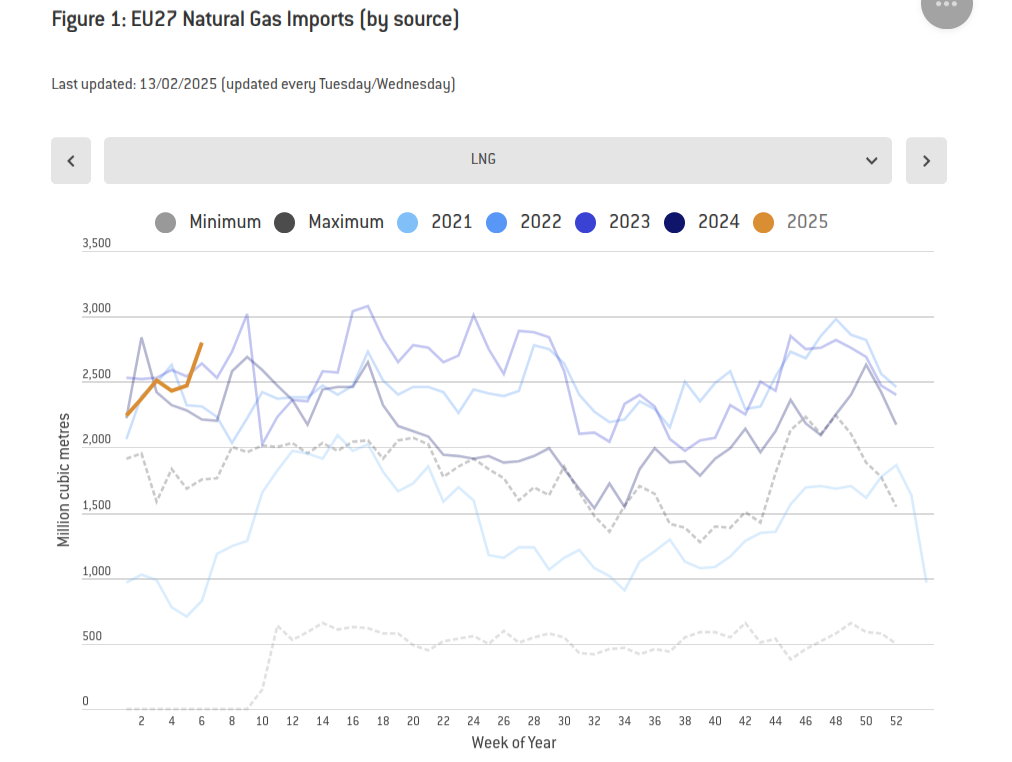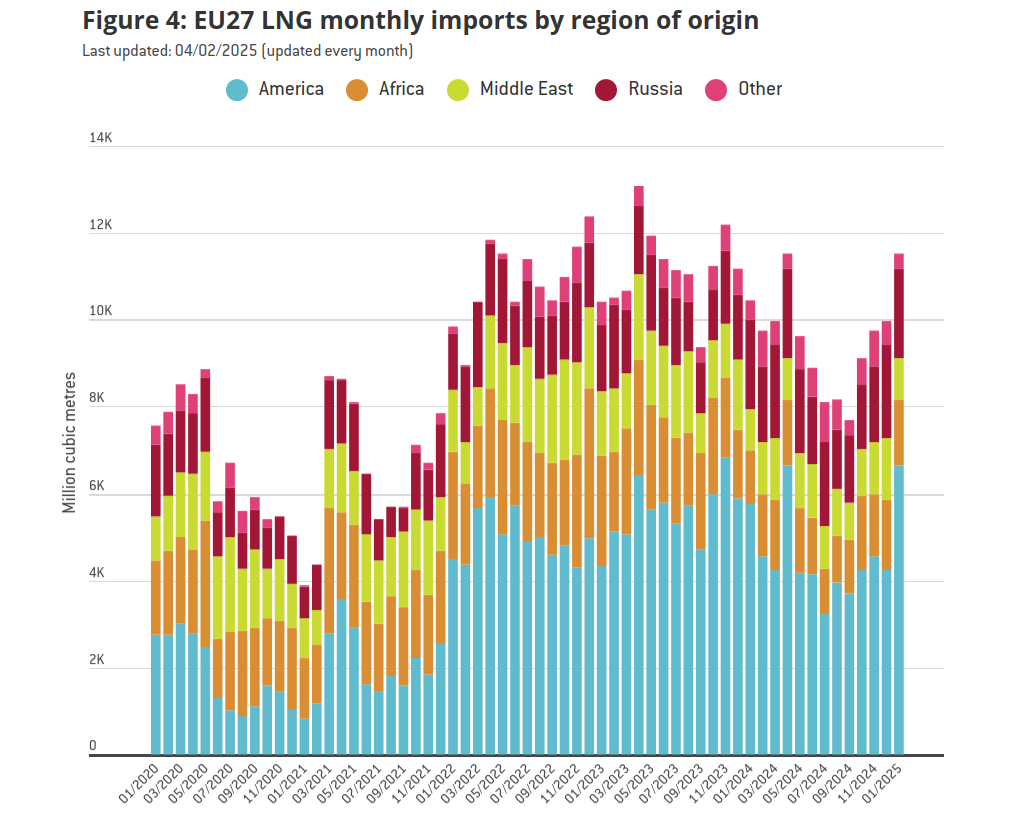- cross-posted to:
- economy@lemmy.world
- cross-posted to:
- economy@lemmy.world
Demand for fuel has pushed gas prices up – but peace in Ukraine could flood the market and change everything
There were no long, hard winter. There won’t be peace in Ukraine in the next few months at least.
Which long hard winter are we talking about here?
And what quick peace in Ukraine are we talking about?
Conditions are also cold in northern Europe, meaning that European gas storage stood at 47% full at the start of this week, 5% below the 5-year average and 20% lower than in 2024, according to analysts at UBS, in a note.
In week 6 of 2025, European gas imports rose and exceeded 2024 weekly import levels. This was driven by higher liquified natural gas (LNG) imports

https://www.bruegel.org/dataset/european-natural-gas-imports
Unless someone has other ideas of what is suddenly consuming a whole lot of LNG I guess chilly weather it is
Mate, there is hardly a correlation with winter in that graph. The highest import for multiple years there is in the middle of the year, which happens to also be the hottest. One year even has the lowest imports in winter (first weeks of the year) and a peak in spring.
It certainly seems unusually higher for January compared to the rest of 2024?

What are we taking about? There was no long, hard winter. Very simple.
Gas import has seemingly little to do with temperature and probably much more with politics and price. Your new graph shows exactly the same, highest imports in summer. No correlation with temperature.
https://www.ft.com/content/0d474498-4d9b-4c1b-8502-71248c720c04
European gas prices hit a two-year high on Monday as colder weather boosted demand, accelerating withdrawals from the region’s fast-depleting storage facilities.
I think the ‘long, hard’ is an exaggeration (my wife agrees) but afaik cold weather is definitely correlated to higher gas prices
Dec 30, 2024, 10:30 AM CST
Northwest Europe is bracing itself for what is expected to be later this week the coldest snap so far this winter, hours ahead of the expiry of the deal for Russian gas transit via Ukraine to central Europe.
Temperatures in the UK, France, and Germany are expected to plunge at the end of this week, which would raise gas demand for heating and electricity generation.
This happens as Europe is burning through its natural gas in storage at the fastest pace in years.
Temperatures in the big European capitals London, Berlin, and Paris are all expected to plummet below freezing and below the average for the past 30 years, according to weather forecasts cited by Bloomberg.




